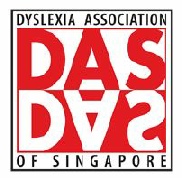

© Dyslexia-Research.com - Dr Neil Alexander-Passe - Contact at: neilpasse@aol.com
Dyslexia-Research.Com - The home of humanistic dyslexia research
Vol. 3, No. 1, January 2016, pp 87—130
DOI: 10.3850/S2345734114000232
Abstract
This paper looks at the origins of success in dyslexic adults, using both an online survey to locate successful dyslexic adults (N=101), and a sub-group of interview participants (N=20) to understand the nature and motivation of success in adults with dyslexia. School trauma was a focus of the study, using the theory of ‘Post-Traumatic Growth’ as a means to understand how individuals can have a traumatic and humiliating schooling, but still gain post-school success through positive use of trauma.
The 30 item online survey reflected the 8 main item investigative interview script, so that both quantitative and qualitative data could be studied. The items looked at: personality descriptions by others, supportive parents, trauma at school, avoidance at school, excellence in non-academic subjects, leadership qualities, team-building, delegation, gut intuition, use of mentors, motivation, unique selling points (USPs), risk, failure, pursuit of passions, creativity and entrepreneurship. A consistency of response was found between the two groups researched, with comments from the interview study enriching the responses from the online survey to present a coherent picture of success.
The interview study also proposed that school trauma could become a positive force in creating successful and resilient dyslexics, with interesting responses as participants coped with the concept of ‘what doesn’t kill you makes you stronger’ by the German philosopher Friedrich Nietzsche (1888).

Asia Pacific Journal of Developmental Differences

| About the Author |
| Academic CV |
| Teaching CV |
| Research for the book |
| Reviews for the book |
| The Successful Dyslexic Book |
| How can parents support their child with dyslexia? |
| Dyslexia, self-harm and attempted suicide |
| The Lifelong social and emotional effects of Dyslexia |
| Dyslexia and Depression |
| Dyslexia: Dating, Marriage & Parenthood |
| Dyslexia and Creativity |
| Dyslexia and Mental Health-differing perspectives |
| Dyslexia & Mental Health |
| Surving School as a Teenage Dyslexic |